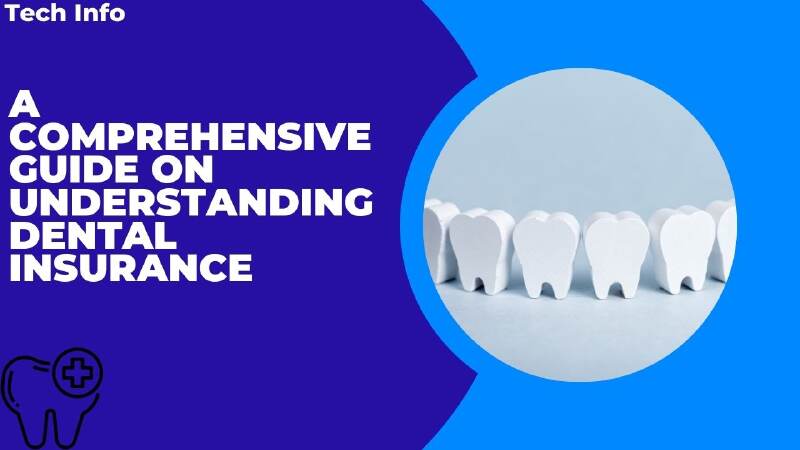Introduction:
Dental health plays a crucial role in our overall well-being, and maintaining it requires regular check-ups, cleanings, and sometimes, more extensive treatments. However, the cost of dental care can add up quickly, leading many to explore the benefits of dental insurance. In this comprehensive guide, we will delve into the intricacies of dental insurance, unraveling the mysteries of how it works and offering insights on how to make the most out of your coverage.
. Understanding Dental Insurance:
Dental care insurance is a specialized form of health insurance designed to cover a portion of the costs associated with various dental care services. Unlike general health insurance, oral insurance focuses specifically on oral health, providing coverage for preventive care, basic procedures, and sometimes major dental work.
. Key Components of Dental Insurance:
1. Premiums: Dental or oral insurance requires policyholders to pay a regular premium like any insurance policy. This is the amount you contribute to the insurance company to maintain coverage, usually on a monthly or annual basis.
2. Deductibles: Dental care insurance often comes with a deductible, which is the amount you must pay out of pocket before your insurance coverage kicks in. Deductibles can vary, so it’s essential to understand your policy’s terms.
3. Coverage Levels: This insurance typically categorizes coverage into three main levels: preventive, basic, and major. Preventive services, such as regular check-ups and cleanings, are usually fully covered. Basic procedures, like fillings and extractions, may be partially covered, while major procedures, such as crowns or root canals, may have more limited coverage.
4. Coinsurance and Copayments: Oral or tooth insurance often involves cost-sharing, with policyholders responsible for a percentage of the total bill (coinsurance) or a fixed amount (copayment) for covered services.
5. Annual Maximums: These insurance policies often have annual maximums, representing the maximum amount the insurance company will pay toward your dental care in a given year. Any expenses beyond this limit become the policyholder’s responsibility.
. How this Insurance Works:
1. Selecting a Plan: Before delving into how this insurance works, it’s crucial to choose a plan that aligns with your needs. Consider factors such as coverage levels, premiums, and networks of dentists available.
2. Routine Check-ups and Preventive Care: Most oral care insurance plans prioritize preventive care to maintain oral health and prevent more significant issues. Routine check-ups, cleanings, and X-rays are typically covered at a high percentage or entirely.
3. Basic and Major Procedures: When it comes to basic and major procedures, coverage varies. Basic procedures may have a higher coverage percentage, while major procedures may be subject to waiting periods and more limited coverage.
5. Network Dentists: Many oral insurance plans have a network of dentists with whom they have negotiated lower rates. Choosing an in-network dentist can help maximize your coverage and minimize out-of-pocket expenses.
6. Coordination of Benefits: If you have multiple insurance plans, coordination of benefits ensures you receive the maximum allowable coverage from each policy, avoiding overpayment.
. Making the Most of Your Dental Insurance:
1. Regular Check-ups: Take advantage of preventive care benefits by scheduling regular oral check-ups. Early detection of issues can save you money in the long run.
2. Know Your Coverage: Familiarize yourself with the specifics of your oral insurance plan, including coverage levels, deductibles, and annual maximums. Understanding these details helps you plan for potential out-of-pocket expenses.
3. In-Network Dentists: Whenever possible, choose a dentist within your insurance network to benefit from discounted rates and increased coverage.
4. Use It or Lose It: Dental insurance benefits often do not roll over into the next year. Schedule any necessary oral work before the end of the coverage period to maximize your benefits.
4. Shop Smart: If you’re in the market for dental insurance, compare plans to find one that best suits your needs and budget. Consider factors beyond premiums, such as coverage levels and out-of-pocket expenses.
Conclusion:
Dental insurance is a valuable tool in maintaining good oral health while managing costs. By understanding the components of dental insurance and how it works, individuals can make informed decisions about their coverage, ensuring they receive the best possible care without breaking the bank. Regular preventive care, knowledge of your policy’s details, and strategic use of benefits can all contribute to a healthy smile and financial well-being.
If you have any questions about this article don’t hesitate to get in touch with us at techinfo.
